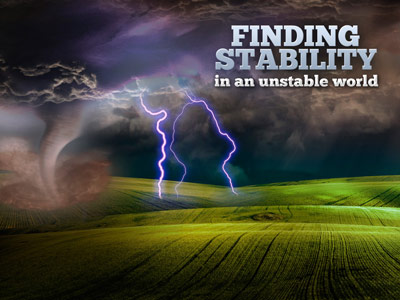-
The Safe Place
Contributed by Isaac Butterworth on Nov 28, 2017 (message contributor)
Summary: In the firm grip of the Father and the Son, held tightly in the grasp of the Triune God – this is our ‘safe place.’
Riverside Cemetery
Wichita Falls, Texas
March 3, 2012
Witness to the Resurrection
Marschal Wilson (Bob) Massey
(October 23, 1918-March 2, 2012)
THE SAFE PLACE
Isaac Butterworth
John 10:22-30 (NIV)
22 Then came the Feast of Dedication at Jerusalem. It was winter, 23 and Jesus was in the temple area walking in Solomon’s Colonnade. 24 The Jews gathered around him, saying, ‘How long will you keep us in suspense? If you are the Christ, tell us plainly.’
25 Jesus answered, ‘I did tell you, but you do not believe. The miracles I do in my Father’s name speak for me, 26 but you do not believe because you are not my sheep. 27 My sheep listen to my voice; I know them, and they follow me. 28 I give them eternal life, and they shall never perish; no one can snatch them out of my hand. 29 My Father, who has given them to me, is greater than all; no one can snatch them out of my Father’s hand. 30 I and the Father are one.’
Some years ago, I used to see Project Safe Place signs. Perhaps you have seen them too. They were most often displayed on houses along residential streets, or on fire stations, or even on public library buildings. They are diamond-shaped with a yellow background and a black logo, showing a large figure, presumably a caring adult, embracing a smaller figure, which represents a child in need.
And that was the point of a Safe Place. A child or a teenager in any kind of trouble – from being locked out of his own home to being threatened by abuse, or whatever – could find immediate help at a Safe Place house. And that’s a good thing, isn’t it?
The Scriptures tell us that, ultimately – when eternity is in view – there is only one safe place, and that place is in the grip of the Triune God. It is Jesus’ ‘hand,’ out of which ‘no one can snatch’ us. It is the hand of the Father. ‘No one can snatch [us] out of my Father’s hand.’ These are Jesus’ words.
We read in John that, when he was in Jerusalem for the last time before his death, he was in the temple. And he was cornered, you might say, by a pack of his adversaries. ‘If you are the Christ,’ they said, ‘tell us plainly.’ Their tone was accusing and threatening. But Jesus was not threatened. He spoke to them with confidence. ‘I did tell you,’ he said, ‘but you do not believe.’ Think about this with me for a moment.
Jesus’ enemies, no doubt, felt safe. They were in a setting that was familiar to them. They outnumbered Jesus. They were sure of themselves and convinced of the just nature of their cause. They were possessed of a deep sense of security.
But it was a false security. The truth is, they were in a dangerous place. ‘You do not believe,’ Jesus told them. And there is no more dangerous place for the souls of men than unbelief.
And look! It was not for lack of having heard the gospel. These men had experienced first-hand the benefit of the ministry of the Word. ‘I did tell you,’ Jesus said. No man will ever hear a better preacher than Jesus, and no ear will ever know a clearer exposition of truth than his. But the fact is, despite being told the greatest truth by the greatest preacher, they still did ‘not believe.’
And there was a reason. Jesus said to them, ‘You do not believe because you are not my sheep.’ It is his sheep, and his sheep only who receive ‘the grace of faith, whereby [they] are enabled to believe to the saving of their souls.’ And this ‘is the work of the Spirit of Christ in their hearts’ (WCF XIV.1).
Jesus died to pay for our sins. He took upon himself the penalty for our transgressions. And, while the death of the blessed Son of God upon the cross is sufficient for the sins of the whole world, forgiveness will come only for those to whom the Holy Spirit applies our Savior’s atoning work. It is Christ’s sheep who come to him for safety. Others turn away, looking for refuge elsewhere. They ‘do not believe.’
‘My sheep listen to my voice,’ Jesus said; and ‘I know them.’ This is the critical thing, isn’t it? That Jesus know us. We talk about knowing Jesus, and that, of course, is essential. The prophet Hosea is urgent about the matter. ‘Let us know; let us press on to know the LORD,’ he says (Hos. 6:3, ESV). And Jesus is no less clear about the necessity of this. ‘This is eternal life,’ he said: ‘that they may know you, the only true God, and Jesus Christ, whom you have sent’ (John 17:3).

 Sermon Central
Sermon Central



